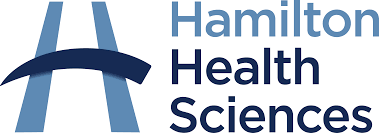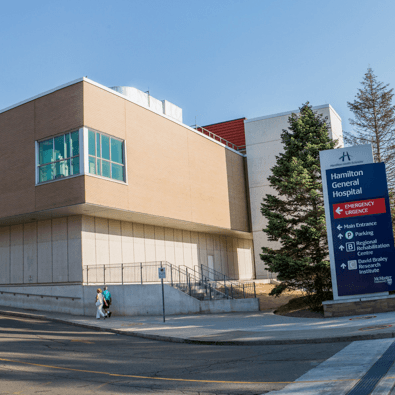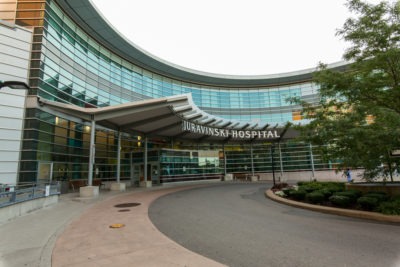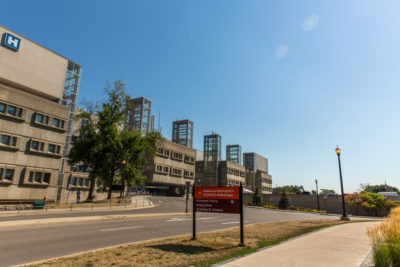Nuclear medicine uses small amounts of radioactive materials to diagnose or treat a variety of diseases including several types of cancers, heart disease and other abnormalities.
Care We Provide
Our nuclear medicine team across HHS sites provide services for cardiology, oncology, nephrology and endocrinology patients.
Referral Process
All patients are referred through their family doctor or through a specialist that they may be seeing.
Requisitions
Positron Emission Tomography (PET) and Computed Tomography (CT) Scans
PET and CT scans aid in the diagnosis, staging and treatment of disease by studying the function of organs in the body.
A PET scan looks at the biological activity of a tumour or abnormality. A CT scan provides multiple images of the inside of the body to help determine location, size and shape of whatever is being examined. A PET/CT scan combines the results of both types of scans and result in a more detailed picture of the diseased tissue.
Cardiac PET/CT: A non-invasive procedure that can identify areas of abnormal blood flow through the heart, and determine the functional capacity of your heart muscle. This helps doctors determine the severity of heart disease and decide what follow-up therapy or intervention is needed.
Oncology PET/CT: Imaging that allows doctors to better locate active tumours using a special radioactive sugar that targets the tumours. These scans can also help determine the success of a treatment overtime, and whether a change in treatment is needed.
PET/CT scans are done at St. Joseph’s Hospital in the Fontbonne Building.
Visit St. Joseph’s website to learn more about PET/CT scans.
Our Team
Our team includes doctors, technologists, a medical imaging physicist, radioisotope safety officer, integrated manager of nuclear medicine and molecular imaging, and administrative coordinator.



